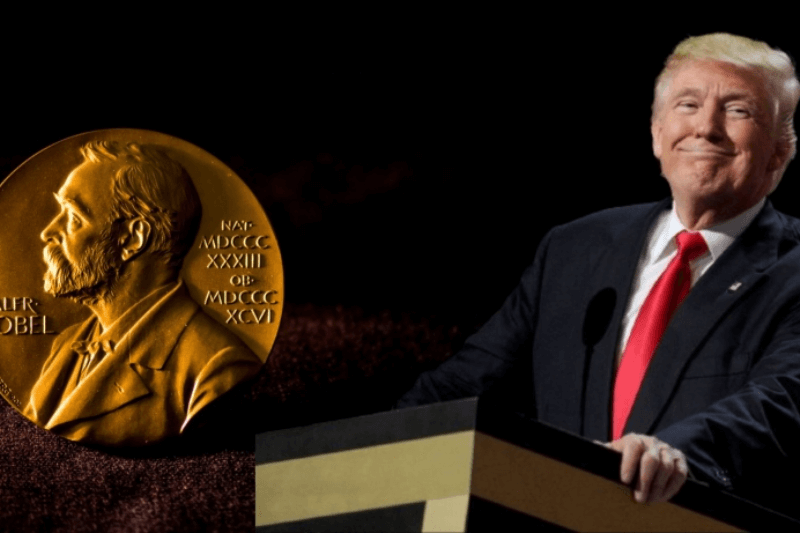
Ex-US President Trump’s Peace Prize: A Middle East Triumph
In a significant turn of events, former US President Donald Trump has been nominated for the Nobel Peace Prize for the fourth time, with Republican congresswoman Claudia Tenney putting forward his name. The nomination centers around Trump’s pivotal role in brokering the historic Abraham Accords during his presidency. This article delves into the details of the nomination, the impact of the Abraham Accords on Middle East policy, and the political landscape surrounding Trump’s recognition.
Former US President Donald Trump’s Nomination for the Nobel Peace Prize
Trump’s nomination for the prestigious Nobel Peace Prize stems from his involvement in the Abraham Accords, a series of peace agreements signed in the Middle East. Claudia Tenney, in her statement, emphasized the significance of Trump’s contributions, highlighting how he played a crucial role in facilitating the first new peace agreements in the region in almost three decades.
The Abraham Accords: A Historic Achievement
The Abraham Accords, signed during Trump’s presidency, mark a historic achievement in Middle East diplomacy. These agreements involved the normalization of relations between Israel and four Arab nations. The treaties shattered the long-standing belief that additional peace agreements in the Middle East were unattainable without a resolution to the Israeli-Palestinian conflict.
Keep Reading
Trump’s Diplomatic Leadership
Tenney underscores Trump’s diplomatic leadership, challenging the conventional wisdom upheld by bureaucrats, foreign policy professionals, and international organizations. The former president demonstrated that Middle East peace agreements could be achieved without waiting for a resolution to the Israeli-Palestinian conflict, debunking a narrative that persisted for decades.
In the current political landscape, Tenney argues that recognizing Trump’s efforts becomes even more crucial. She suggests that, amidst what she perceives as Joe Biden’s weak leadership on the international stage, acknowledging Trump’s strong leadership and commitment to achieving world peace is imperative for the safety and security of the country.
Trump’s Previous Nominations
This marks the fourth time Trump has been nominated for the Nobel Peace Prize. Notably, the Oslo Accords of 1994 and the 1978 peace treaty between Egypt and Israel were previously recognized by the Nobel committee. However, Tenney emphasizes that Trump’s mediation in the settlement between Israel and its Arab neighbors has not received the acknowledgment it deserves.
The Unacknowledged Role
Despite being the front-runner for the Republican nomination for president, Trump did not secure the Nobel Peace Prize during his presidency. Tenney highlights the oversight in not recognizing Trump’s role in the Abraham Accords, a significant peace accord that holds regional and global implications.
In a 2019 press conference in New York, Donald Trump expressed his belief that he would receive a Nobel Prize for various achievements if they were awarded fairly. This statement reflects Trump’s confidence in the impact of his actions, including those related to international diplomacy.
Conclusion
In conclusion, the nomination of Donald Trump for the Nobel Peace Prize is rooted in his instrumental role in brokering the historic Abraham Accords. The impact of these accords on Middle East policy cannot be understated, challenging long-standing beliefs and setting a new precedent for diplomatic achievements. The recognition of Trump’s leadership becomes crucial in the current geopolitical landscape, with Tenney asserting the necessity of acknowledging his efforts for the safety and security of the nation.




